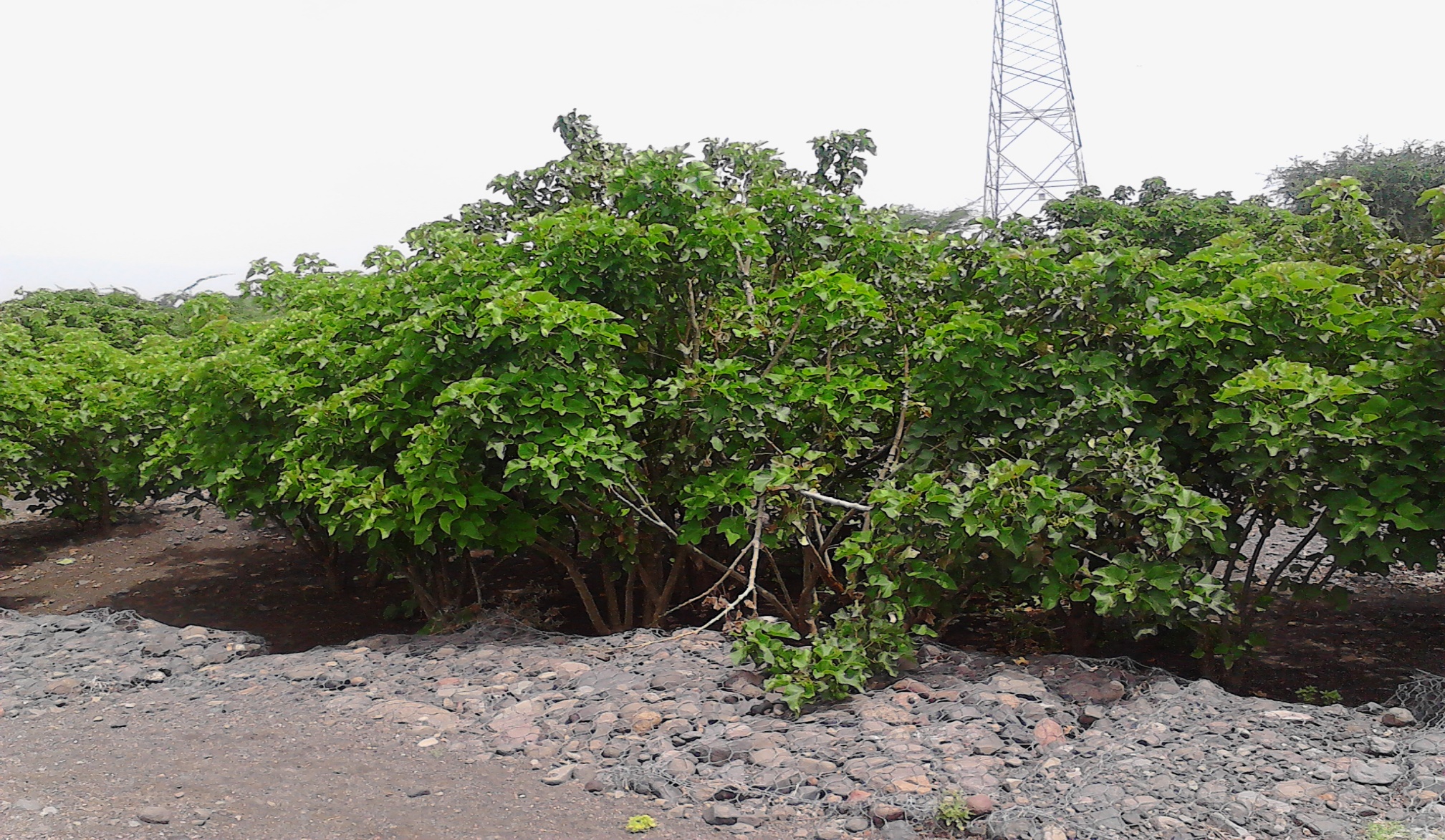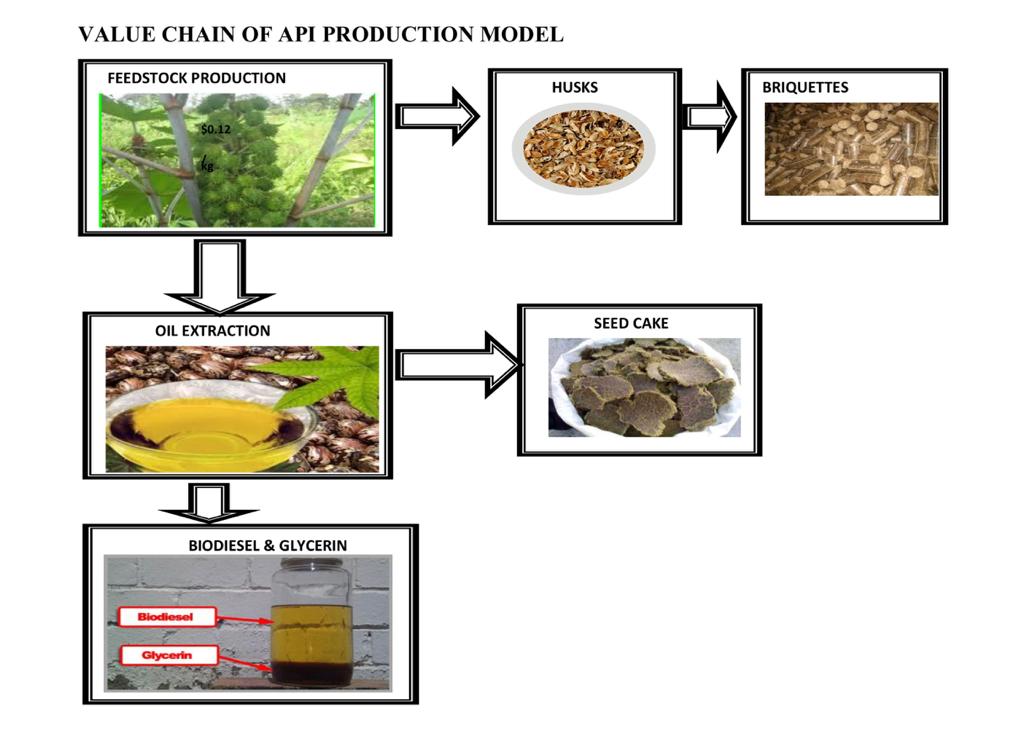
API’s commitment to social and environmental responsibility is embodied throughout its business plan. API utilizes a bio-diverse portfolio of feedstock (non-food) crops which have demonstrated success by growing on semi-arid land in the region. The project involves vast reforestation with oilseed-bearing trees that sequester CO2 for over 70 years, whereby API achieves a low-carbon life cycle for its fuels and reverses the trend of land degradation. The extension services that API provides enhance food security where feedstock crops may be inter-cropped with food crops. API’s rural employment does improve livelihood and reduce conflict in regions particularly vulnerable to climate change.
API’S business model is hinged on mainly three aspects namely proper feedstock selection, cost effective processing techniques and efficient waste management.
Other valve chain products
The profitability and sustainability of API’s business model relies on maximizing efficiency through the utilization of biodiesel co-products. Of the total material received as feedstock, less than half of it can be utilized in producing biodiesel. API recognizes that excessive waste production can jeopardize the sustainability of its product’s life-cycle, and thus has chosen to emulate the petroleum refining industry which achieves over 99.95% material efficiency. In a similar fashion, API is giving special attention to minimizing the waste and maximizing the value of the products that can be made from it. Plans are to process husks, shells, seed cake, and other portions of the feedstock crops unused during biodiesel production into new value-added applications. Examples of these downstream products that will be produced by API from waste material, namely biomass, seed cake and glycerol, include biobriquettes for wood-burning stoves, soap and organic fertilizers.


